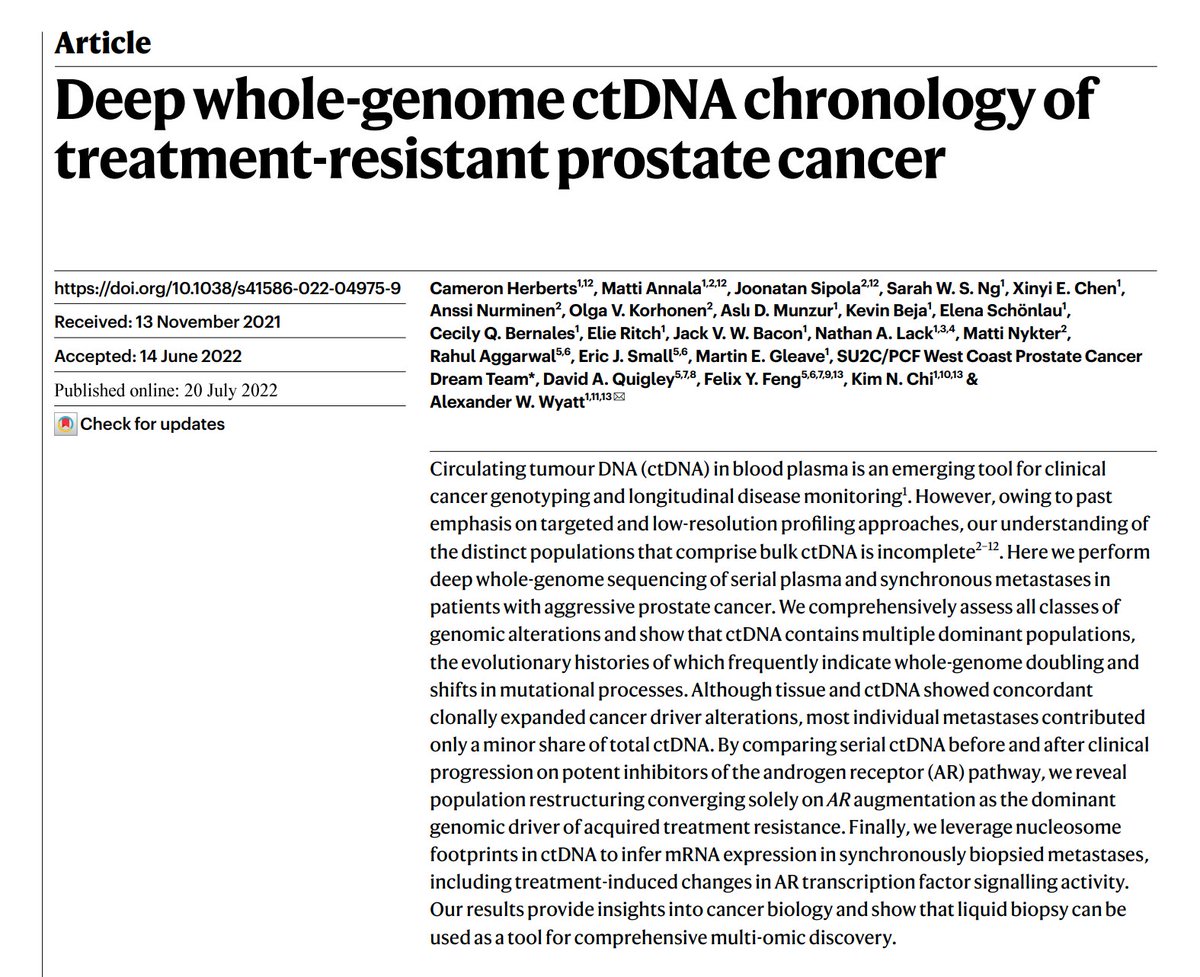
Here’s our @Nature paper on v deep whole-genome sequencing of serial ctDNA and met tissue. @cherberts1, Matti, Joonatan et al applied new methods to give fascinating insight into temporal #ProstateCancer clonal complexity and evolution of resistance. 1/7 nature.com/articles/s4158… 

ctDNA is a composite of distinct cancer populations, with small contributions to total ctDNA from each metastasis. Intra-patient clones are typically similar but can exhibit startling differences in key features such as whole-genome doubling status or mutational signatures. 2/7 



ctDNA populations are in dramatic flux over time, with treatment causing expansions of populations with unique genetic profiles. In prostate cancer this means constant selection for new clones that have increasingly aggressive AR gene alterations. 3/7 

We used ctDNA fragment features in WGS to inform AR signalling activity in metastases. In theory this means we can use a *single* ctDNA test to simultaneously assess for hard-wired genomic alterations and adaptive lineage plasticity in prostate cancer. 4/7 



Data & code is public; no black boxes. Cam, Matti, & Joonatan also created detailed method walk-throughs in a ~250 (!) page supplement – hopefully this extra resource can help expand impact to other metastatic cancers with high ctDNA fraction. 5/7 

I believe in ctDNA characterization as a clinical tool but our work also advances ctDNA as a modality for biological *discovery* – enabling broader study of metastatic cancers, including in rural or remote communities where fresh tissue biopsy is pragmatically unfeasible. 6/7
Long list of donations, grant funding, and mentorship that enabled this work but I would like to flag the transformative @PCF_Science PCF-SU2C Dream Teams, astute guidance from Kim Chi, @felixfengmd, @David_A_Quigley, and incredibly informed/engaged peer-reviewers. Thanks! 7/7
• • •
Missing some Tweet in this thread? You can try to
force a refresh



